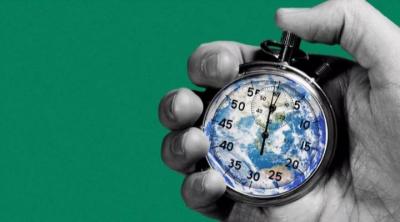The year 2022 may have been the most challenging for the Lebanese people since the onset of crises at the end of 2019, followed by a series of events in 2020 which marked the most significant economic collapse in Lebanon. This year was also marked by the catastrophic explosion on August 4th, resulting in thousands of casualties. Year 2021 witnessed a worsening of economic conditions, with an unprecedented rise in the dollar and the collapse of the Lebanese lira. As each new year begins, Lebanese people celebrate the arrival of the new year with optimism for a better tomorrow. However, this year brought unexpected developments on all fronts, as the crises worsened and conditions deteriorated further. As the year comes to a close, we reflect on the key economic and social events that characterized 2022.
**Series of Bank Raids and Demands for Deposits**
Throughout 2022, more than one Lebanese depositor raided various banks at different times, successfully obtaining their funds or part of them by force. The first incident occurred in January when a citizen stormed the Lebanon and the Arab Bank in the Bekaa region, dousing it with gasoline and threatening to set it ablaze if he did not receive his deposit. The bank's management acquiesced, and Abdullah Al-Sa'ei received an amount of fifty thousand dollars, setting off a series of similar raids. The Lebanese public reacted widely to these incidents, especially in the case of depositor Sally Hafiz, whose story became a public issue after she raided "Blom" Bank in a Hollywood-style manner to pay for her sister's cancer treatment.
**Acute Bread Crisis**
Lebanese citizens faced an acute bread crisis due to a shortage of flour and the refusal of mills to deliver bread at the established price, resulting in long queues at bakeries and widespread public anger. The crisis only resolved after the intervention of the Central Bank of Lebanon, which opened new credits, prompting the Ministry of Economy to raise the price of a loaf of bread, ultimately victimizing the citizen once again.
**Removing Fuel Subsidies**
After successive crises that led to long queues at gas stations, the Central Bank of Lebanon decided mid-September to lift fuel subsidies, causing the prices of gasoline, diesel, and gas cylinders to rise more than fourfold, adding another burden to the Lebanese, particularly with the onset of winter and falling temperatures.
**Death Boats Migration**
Lebanon witnessed a severe setback in terms of illegal migration, with many people losing their lives while attempting to leave by sea. This tragedy recurred, particularly in northern Lebanon, coinciding with the deteriorating economic conditions and difficult living circumstances.
**Circular from the Central Bank Allowing Dollar Purchases through "Sayrafa"**
Based on Circular 161 and its implications, along with articles 75 and 83 of the Monetary and Credit Law, the Governor of the Central Bank, Riyad Salameh, addressed holders of the Lebanese lira on May 27, asking citizens and institutions who wanted to convert it to US dollars to submit these requests to Lebanese banks at the rate set by the "Sayrafa" platform. It is noted that the effects of this circular have been periodically extended according to the dollar's rate.
**Increase in Internet and Telecommunications Tariffs**
On July 1, 2022, prices for internet packages and telecommunications services rose after being linked to the dollar exchange rate on the "Sayrafa" platform of the Central Bank.
**Approval of the 2022 Budget with Increased Taxes**
The Parliament enacted random increases in the budget law, which fell short of improving employees’ living conditions. The increase was far less than what public sector workers demanded and diminished in value due to the ongoing rise in the dollar's price. Additionally, the budget included an increase in the customs dollar from 1,500 to 15,000 Lebanese lira, resulting in a significant rise in the prices of imported goods before the decision's implementation, leaving catastrophic repercussions on citizens' purchasing power and affecting sectors such as imported cars.
**Agreement with the International Monetary Fund**
After several consultations between Prime Minister Najib Mikati and the International Monetary Fund (IMF) team, an agreement was reached for a 46-month extended financing arrangement, conditional on implementing a series of reform conditions or at least commencing their implementation. However, this agreement is currently suspended until further notice due to Lebanon's failure to meet these conditions to date.
**Approval of the Law to Lift Banking Secrecy**
After discussions and amendments, amidst conflicting opinions, the law was passed to lift banking secrecy for anyone involved in public affairs, whether with the Central Bank, ministries, or public administrations for one year. This law links to forensic audits, which are among the reform laws demanded by the IMF.
**Dollar Reaches Its Highest Level in History**
With the continued rise in the exchange rate of the dollar in the black market recently, the dollar reached its highest level in history, nearing 50,000 Lebanese lira.
**Raising the "Sayrafa" Dollar Rate to 38,000 Lira**
After the dollar surpassed the 48,000 lira mark, the Central Bank issued a circular raising the "Sayrafa" dollar price to 38,000 Lebanese lira. The “central bank” will sell dollars at this price in exchange for Lebanese lira for individuals and institutions, without a cap on the value of transactions until January 31, thus aiming to decrease the dollar price in the black market. Indeed, the latter saw a significant drop of over 3,000 lira at once, causing catastrophic losses across various sectors.
**Sudden and Significant Drop in Fuel Prices and Closure of Gas Stations**
Following the Central Bank’s circulars, the Ministry of Energy issued a price list factoring in the dollar exchange rate according to the Sayrafa platform, resulting in a sudden drop in fuel prices. In the last week's price list of the year, the decline exceeded 80,000 lira per gasoline tank, causing significant losses for station owners and leading them to shut down to prevent further losses. Citizens hurried to fill their tanks, leading to scenes of lines forming at some stations amid fears of another crisis on the eve of the holidays. Consequently, Prime Minister Najib Mikati intervened to resolve the crisis. It is worth mentioning that fuel prices rose again in the subsequent list, forcing station owners to reopen.
In addition to the above, Lebanon experienced strange and unexpected events, some of which shocked the citizens and impacted their daily lives, prompting reactions and becoming part of their routines.
**"Death Boat" Incident**
Initially, the "Death Boat" incident became a tragedy for the northern region, particularly due to the rise in illegal migration given the difficult living conditions and harsh reality. The "Death Boat" claimed the lives of dozens of victims among the dead and missing, with search operations lasting for several days to rescue what could be saved.
**Ceiling Collapse in Tripoli School**
A 16-year-old student lost her life and another was injured due to the ceiling collapsing in a classroom at a school in Tripoli, provoking a fierce reaction from the parents.
**Death of Artist Georges Al-Rassi in a Horrific Car Accident**
Artist Georges Al-Rassi died in a horrific car accident on the way to the border, having collided with the curb; the young woman accompanying him from his concert in Syria also perished. Following the incident, citizens expressed their sorrow for the early loss of Al-Rassi, with a wave of grief permeating social media as images of him and his songs circulated.
**Flooding on the Coastal Highway Due to Heavy Rain**
Once again, with the first "rainfall," most roads and highways in various Lebanese regions were submerged under water due to heavy rains. The northern and southern entrances of the capital and most streets, even secondary ones, turned into rivers and swamps, causing severe traffic jams that revealed the fragility of infrastructure and the absence of any sustained maintenance or solutions from the government.
**Arrest of Actress Stephanie Saliba on Money Laundering Charges**
Actress Stephanie Saliba was arrested and referred to the State Security Agency due to a search and investigation request from the Mount Lebanon public prosecutor Ghadah Aoun, issued by the aforementioned security agency. The latter issued a warrant for Saliba based on Lebanese and European investigations related to embezzlement and money laundering involving the Governor of the Central Bank, Riyad Salameh. The warrant was shared with security forces, while Saliba was interrogated and later released. It is noteworthy that the appellate public prosecution issued a court decision preventing actress Stephanie Saliba from managing her funds, in connection with the investigation into the money laundering case.




